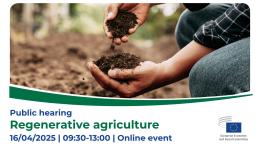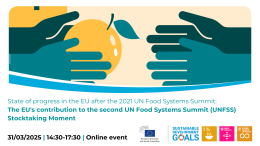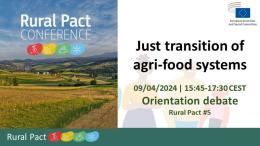European Economic
and Social Committee
Az élelmezés fenntarthatósága
Az élelmiszer életünk központi eleme, és az európai kultúra szerves részét képezi. Az, hogy milyen élelmiszert fogyasztunk, azt miként állítjuk elő és mennyit pazarolunk el belőle, kiemelkedő hatással van az emberi egészségre, a természeti erőforrásokra és a társadalom egészére.
- Az emberek – és főként a gyermekek – egyre nagyobb mértékben szenvednek a túlsúlytól és elhízástól, amit az egészségtelen étrend okoz.
- A mezőgazdasági termelők és munkások nem kapnak tisztességes árat termékeikért.
- Az élelmiszerláncban az élelmiszer egyharmada veszteséggé vagy hulladékká válik.
- Mindennek árát a környezet fizeti meg: az élelmiszer-termelés és -fogyasztás drámai hatással van többek között az éghajlatváltozásra, a biológiai sokféleség csökkenésére, a levegő- és vízszennyezésre és a talajromlásra.
A Covid19-válság ráébresztette a világot arra, hogy változásokra van szükség. Egyértelművé tette, hogy az élelmiszer eljutása „a termelőtől a fogyasztóig” nem magától értetődő, és azt is megmutatta, hogy a teljes élelmiszerrendszert meghatározza a szereplők és a tevékenységek összefonódása. Minden eddiginél nagyobb szükség van méltányos, erőforrás-hatékony, inkluzív és fenntartható ellátási láncokra a mezőgazdasági és az élelmiszeripari ágazat egészében ahhoz, hogy a polgárok, a mezőgazdasági termelők, a munkavállalók és a vállalkozások egyenlő mértékben részesüljenek az előnyökből.
Az EGSZB évek óta úttörő szerepet játszik egy fenntartható és átfogó élelmezéspolitika szorgalmazásában. Egy ilyen integrált és rendszerszintű megközelítés elengedhetetlen ahhoz, hogy kezeljük az élelmiszerrendszereket érintő sokféle, egymással összefonódó kihívásokat, hogy megvalósítsuk a gazdasági, környezeti és társadalmi-kulturális fenntarthatóságot, garantáljuk az egyes szakpolitikai területek (például a mezőgazdaság, a környezetvédelem, az egészségügy, az oktatás, a kereskedelem, a gazdaság és a technológia) közötti integrációt és koherenciát, valamint előmozdítsuk az egyes kormányzati szintek közötti együttműködést.









